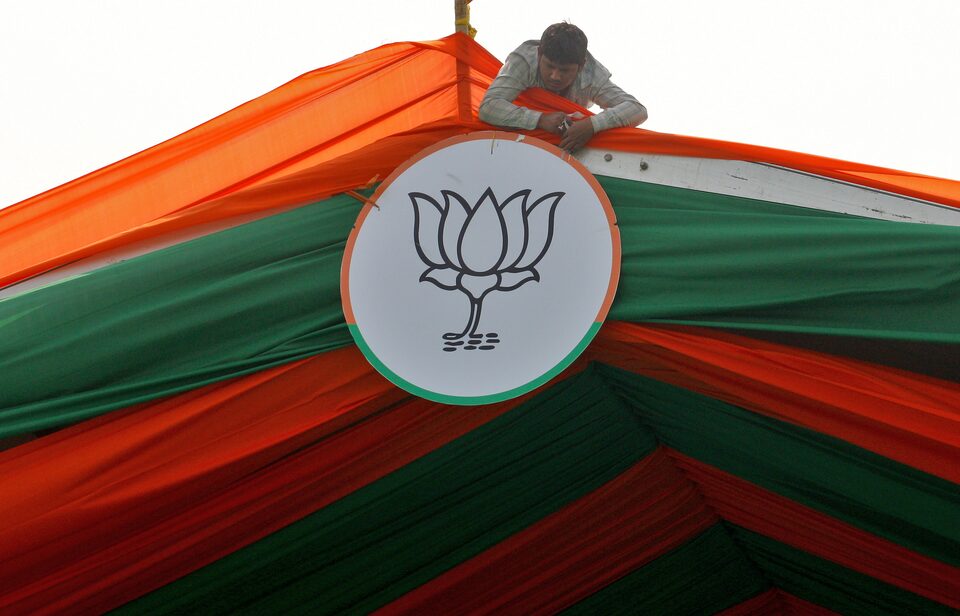The task force of 40 BJP UP members has come up with predictable reasons for the party’s setback in the state in the recent Lok Sabha polls — from party infighting to caste equations and non-cooperation of government employees. UP CM Yogi Adityanath transferred 12 DMs immediately after the report, since the committee’s inference was that he did not exercise sufficient control over government employees.
But the genesis of the UP defeat needs more introspection. The investigation should have started with the BJP’s central election committee meeting on February 29, when the names of some 50 of the 80 UP seats were cleared. The committee members, including Adityanath, waited for over two hours since Narendra Modi, Amit Shah and J P Nadda first met informally at Lok Kalyan Marg, where a short list of 50 BJP Lok Sabha candidates was drawn up. At the official meeting, general secretary (organisation) B L Santhosh read out the names and few interjected. The common refrain was “whatever the party thinks appropriate”. The names from UP were cleared in barely 20 minutes and some 65% were sitting MPs, since the party seemed confident that UP’s formidable ‘double engine ki sarkar’ would ensure their victory. Adityanath’s reported suggestion to change the names of 35 sitting MPs was ignored. Eventually, 27 BJP incumbents lost the polls.
Incidentally, the BJP won all the Lok Sabha seats around Gorakhpur, Adityanath’s stronghold but lost in parliamentary seats around Varanasi, the PM’s constituency. Varanasi and Lucknow were the only two constituencies the task force did not visit. If they had travelled to Varanasi, they would have discovered the considerable resentment over contracts for major projects in and around the city being awarded not to local UP contractors, but to those from western India. Indicative of divisions in the UP BJP was the fact that Deputy CM Keshav Prasad Maurya remained mostly in Delhi for almost a month after the election results.
Unprecedented seating
At the swearing-in of the Modi 3.0 cabinet last month, the Rashtrapati Bhavan staff and Delhi police were swamped by too many important people flashing invitation cards and demanding premier seating. In the bargain, the carefully drawn up warrant of precedent was thrown to the wind. The most glaring breach of protocol was billionaires Mukesh Ambani and Gautam Adani ending up in the second row with Bollywood superstar Shah Rukh Khan. A group of sadhus was in the front row, while J&K Governor Manoj Sinha, Adityanath and CMs from the North-East were relegated to the third row. The biggest faux pas was that CDS General Anil Chauhan and outgoing Army chief General Manoj Pande were seated in the sixth row. Security personnel cannot alone be blamed, the President’s Military Secretary and her ADCs should have earmarked seats for the respective chiefs of the Armed forces.
Mumbai royals
Even the British royal family, who have conducted their marital ceremonies with pomp and circumstance, and much public interest for centuries, could perhaps learn a lesson from the Ambani’s family in attracting the maximum eyeballs on social media. The family’s army of event managers has organised parties for the last few months in exotic locations — from an elephant rescue farm and a zoo in Jamnagar to a swinging jet-setting cruise through Italy to celebrate the marriage of Anant Ambani and Radhika Merchant. They even hijacked the Indian team’s success at the World Cup to stage a felicitation at the Ambani centre in BKC, Mumbai. Nita Ambani, glittering in diamonds, and her equally dressed up wedding guests, felicitated cricket heroes Rohit Sharma, Hardik Patel and Suryakumar Yadav, who have all played for the Mumbai Indians IPL team. The trio, looking a tad embarrassed, were togged out in party attire in similar dark coloured sequinned outfits.
Ensuring its 10%
Opposition leader in the Rajya Sabha, Mallikarjun Kharge is skating on thin ice. The Congress strength in the Upper House has fallen to 26 seats after two Rajya Sabha MPs, Deepender Hooda from Haryana and K C Venugopal from Rajasthan, were elected to the Lok Sabha in the recent poll. The Congress needs representation by at least 10% of the total MPs in the Upper House, whose present strength is around 250, if its nominee is to be recognised as the official leader of the Opposition. In a bid to help Congress secure the position, K Keshava Rao of the BRS recently defected to the party. With the Congress in the majority in the Telangana Assembly, the party’s RS nominee will automatically win the by-election. If 85-year-old Rao agrees to step aside, jurist Abhishek Manu Singhvi is waiting eagerly for a Rajya Sabha re-entry.
(Views expressed in the article are personal opinion of the author.)


